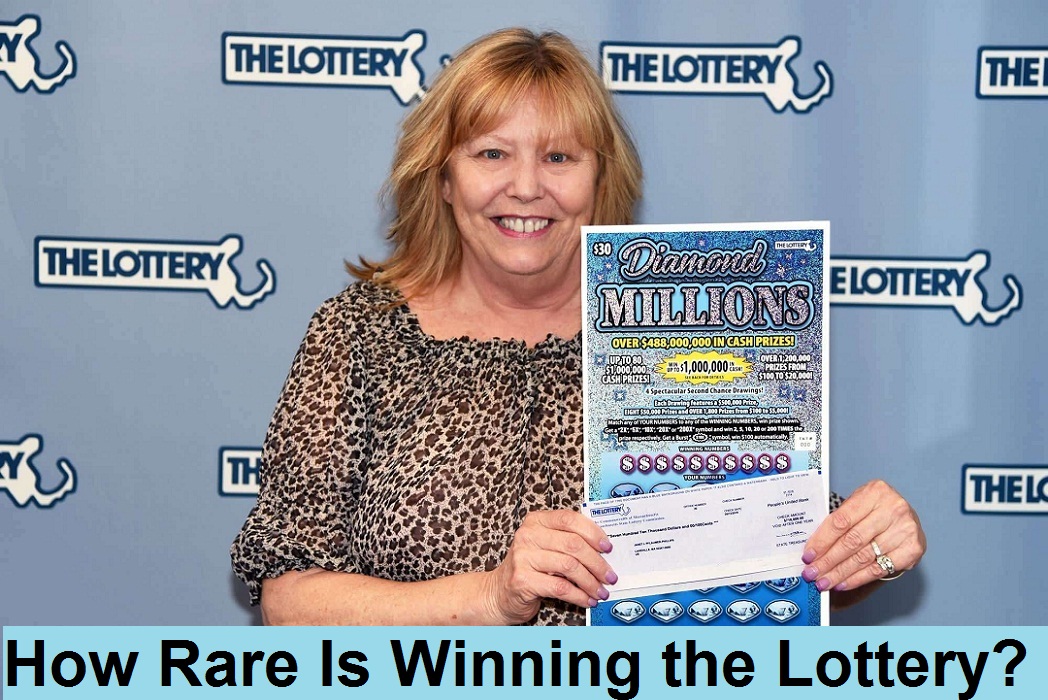Contents
- 1 How Rare Is Winning the Lottery?
- 1.1 How Rare Is Winning the Lottery?
- 1.2 The Mathematics of Winning
- 1.3 FAQs: How rare is winning the lottery
- 1.3.1 Q: Is winning the lottery purely based on luck?
- 1.3.2 Q: Are there any strategies that can improve my chances of winning?
- 1.3.3 Q: Can past lottery results help predict future outcomes?
- 1.3.4 Q: What happens if multiple people win the jackpot?
- 1.3.5 Q: What are the tax implications of winning the lottery?
- 1.3.6 Q: Are there any strategies to cope with winning a large sum of money?
- 1.3.7 Share this:
- 1.3.8 Like this:
- 1.3.9 Related
How Rare Is Winning the Lottery?
Welcome to this captivating article that delves into the captivating world of lotteries. In this comprehensive piece, we will explore the burning question on everyone’s minds: “How rare is winning the lottery?” Lotteries have long been a source of excitement and dreams for countless individuals worldwide. From the thrill of purchasing a ticket to the anticipation of the draw, winning the lottery represents the pinnacle of luck and good fortune. But just how rare is it to achieve this elusive feat?
How Rare Is Winning the Lottery?
Winning the lottery is an incredibly rare event, with odds that often seem astronomical. The chances of winning vary depending on the specific lottery and the number of participants. However, it is crucial to understand that winning the lottery is a matter of luck and chance, rather than skill or strategy. Each ticket sold holds a minute possibility of hitting the jackpot, but the likelihood of success remains slim.
The Mathematics of Winning
Lotteries employ complex mathematical algorithms to determine the odds of winning. These algorithms take into account various factors such as the number of possible combinations, the total number of tickets sold, and the specific rules of the game. To gain a deeper understanding of the rarity of winning the lottery, let’s examine some concrete examples and statistics.
Powerball: The American Dream
Powerball, one of the most popular lotteries in the United States, offers a staggering jackpot that captures the imagination of millions. To win the Powerball jackpot, a player must match all five white balls, drawn from a set of 69, and the red Powerball, chosen from a pool of 26 numbers.
The odds of hitting the Powerball jackpot are approximately 1 in 292,201,338. These daunting odds reveal the extraordinary rarity of winning the grand prize. To put this into perspective, consider the following analogy: imagine you have a standard 9-inch ruler, and the distance from one end to the other represents the odds of winning the Powerball jackpot. In this scenario, the length of the ruler would stretch over 3,590 miles or 5,775 kilometers—a journey spanning several countries or even continents.
In conclusion, winning the lottery is an exceedingly rare event. The odds of securing the jackpot are often astronomical, highlighting the element of luck and chance inherent in these games of opportunity. While winning the lottery can be a life-changing experience, it is essential to approach it with realistic expectations and a responsible mindset. Remember to play responsibly and enjoy the excitement and anticipation that come with participating in a lottery.
FAQs: How rare is winning the lottery
Q: Is winning the lottery purely based on luck?
A: Yes, winning the lottery is primarily a game of luck. The outcome is determined by a random drawing, and no amount of skill or strategy can guarantee a win.
Q: Are there any strategies that can improve my chances of winning?
A: While it is impossible to guarantee a win in a lottery, there are certain strategies you can employ to maximize your odds. For instance, joining a lottery pool or selecting less popular numbers may slightly increase your chances of not having to share the jackpot.
Q: Can past lottery results help predict future outcomes?
A: No, lottery draws are entirely random, and past results have no bearing on future outcomes. Each drawing is an independent event with the same odds as any other.
Q: What happens if multiple people win the jackpot?
A: If multiple individuals have winning tickets for the same jackpot, the prize is divided equally among the winners. This is often referred to as a jackpot “split” or “rollover.”
Q: What are the tax implications of winning the lottery?
A: The tax implications of winning the lottery vary depending on your jurisdiction. In many countries, lottery winnings are subject to income tax. It is advisable to consult a financial professional to understand the specific tax regulations in your region.
Q: Are there any strategies to cope with winning a large sum of money?
A: It is essential to seek professional financial advice and develop a solid plan for managing your newfound wealth. Many lottery winners find it helpful to create a budget, invest wisely, and surround themselves with a trustworthy team of advisors.

